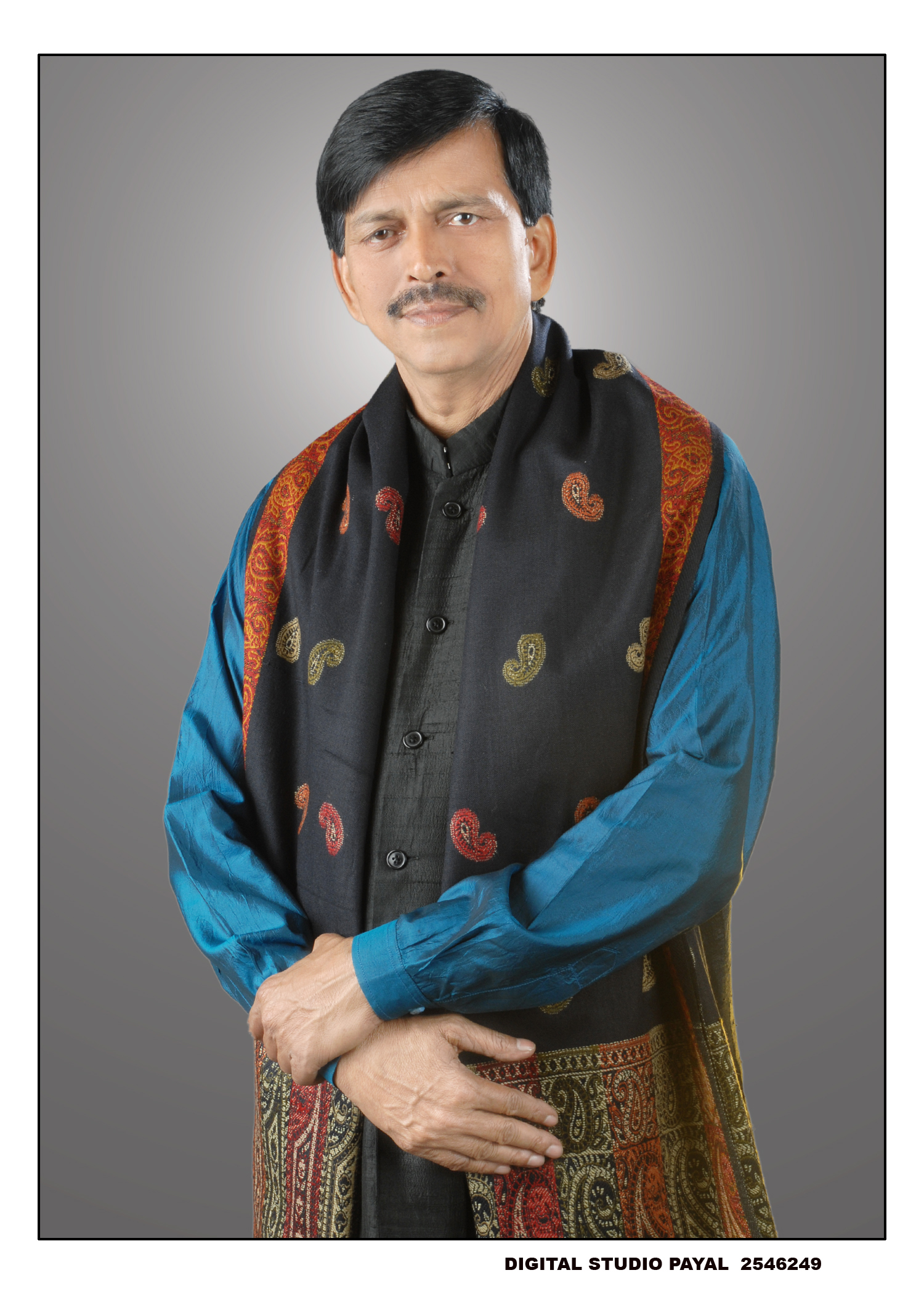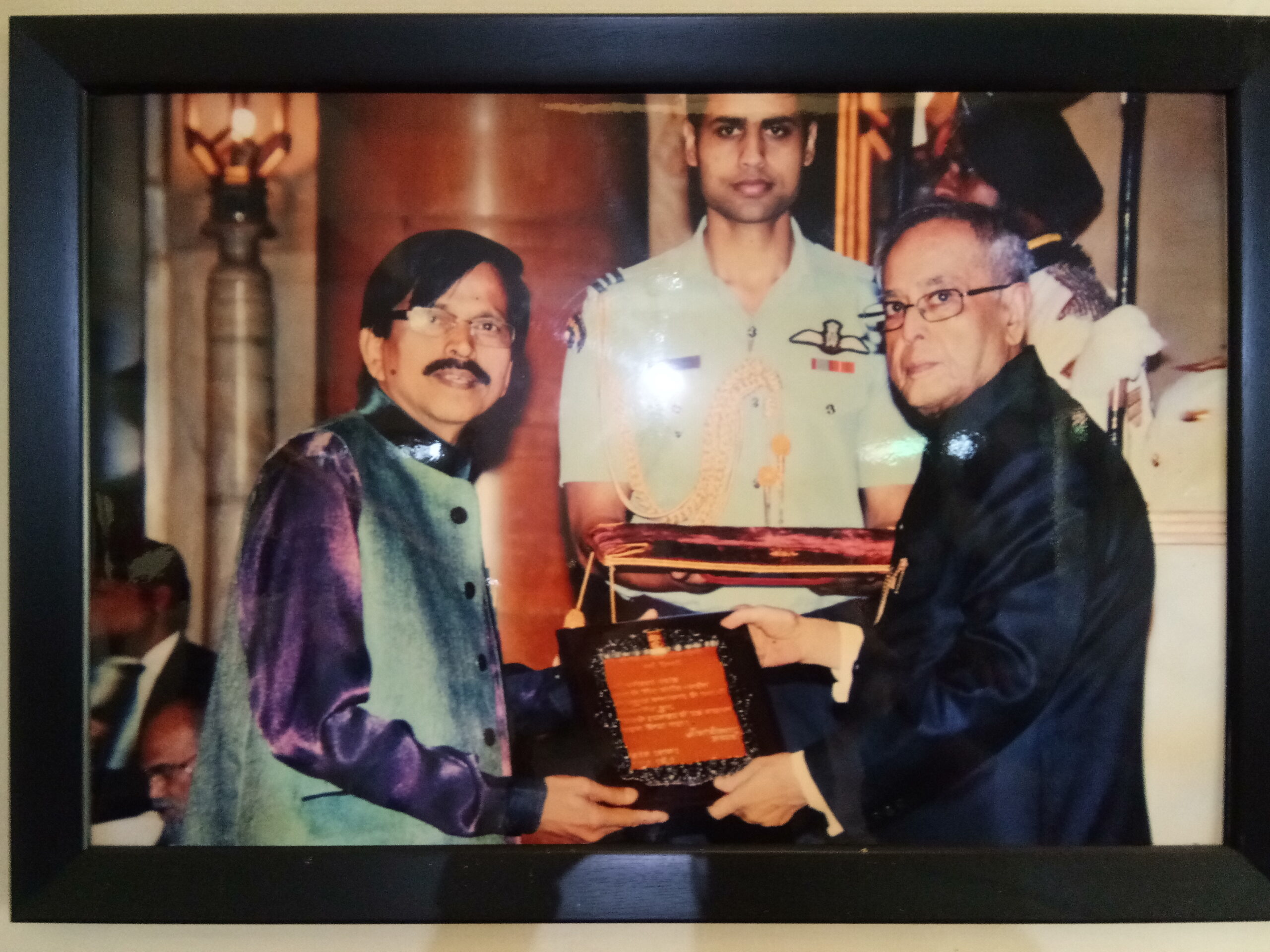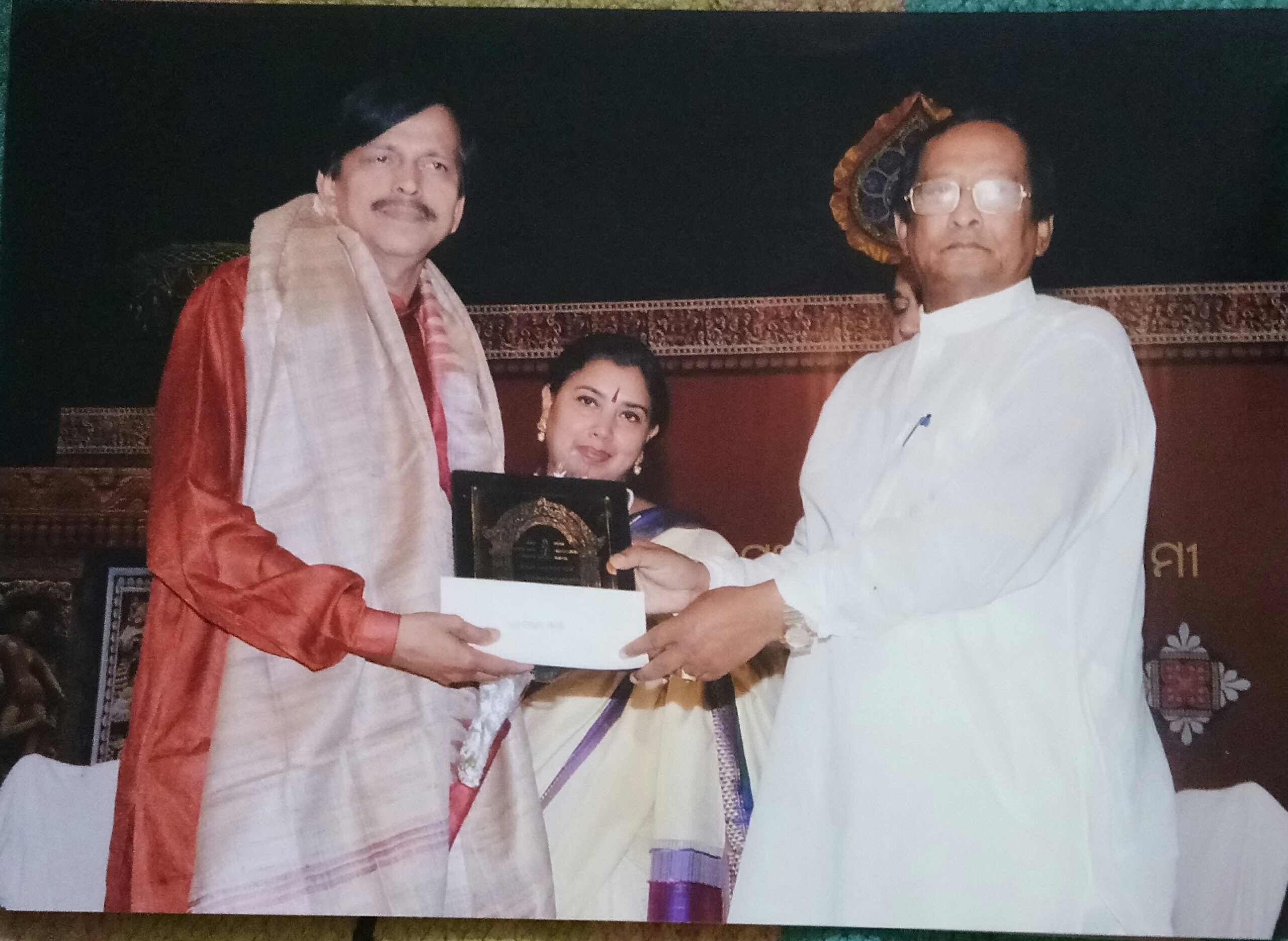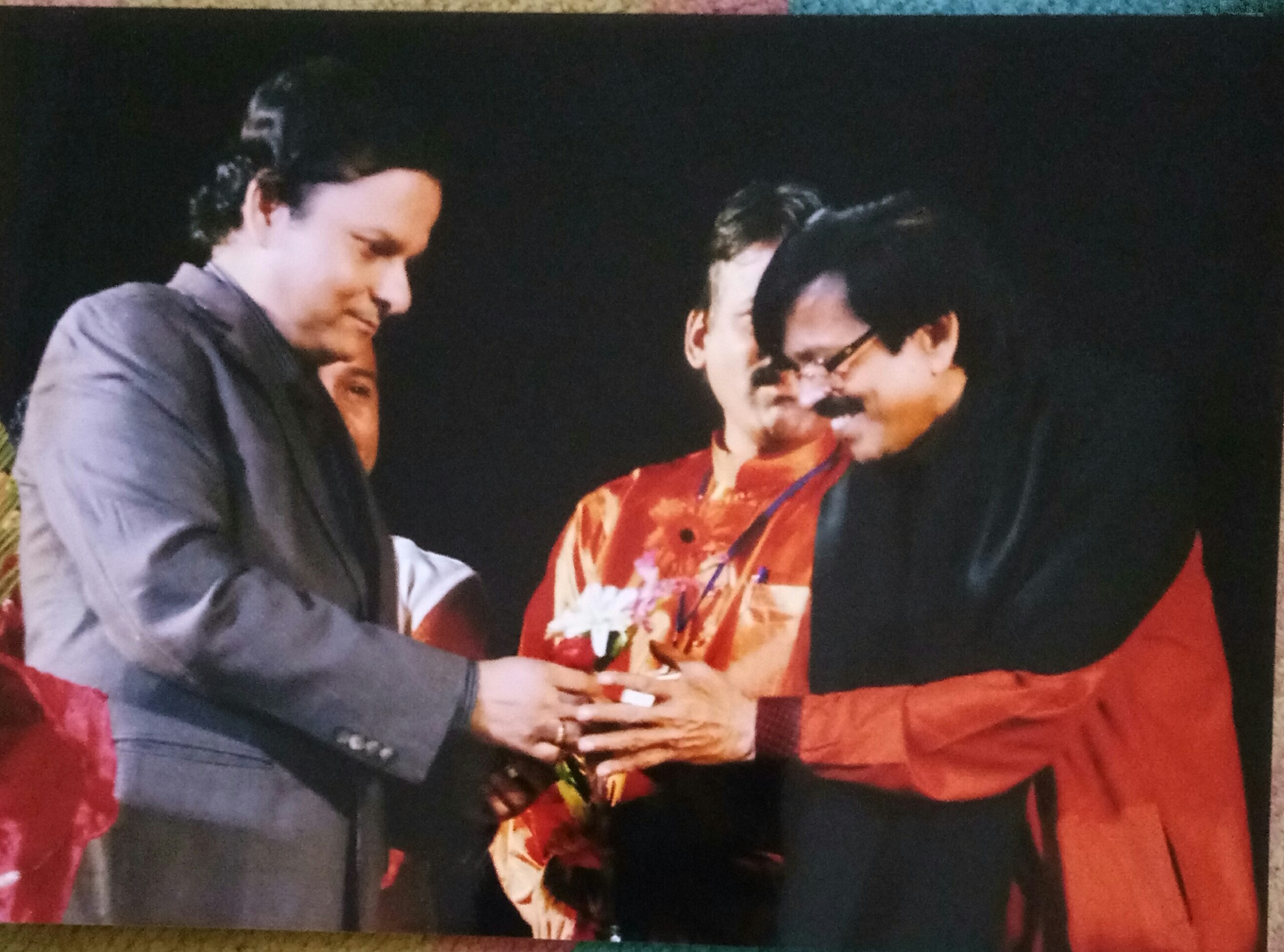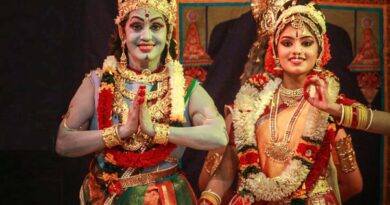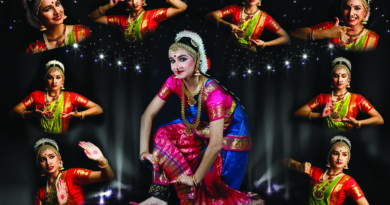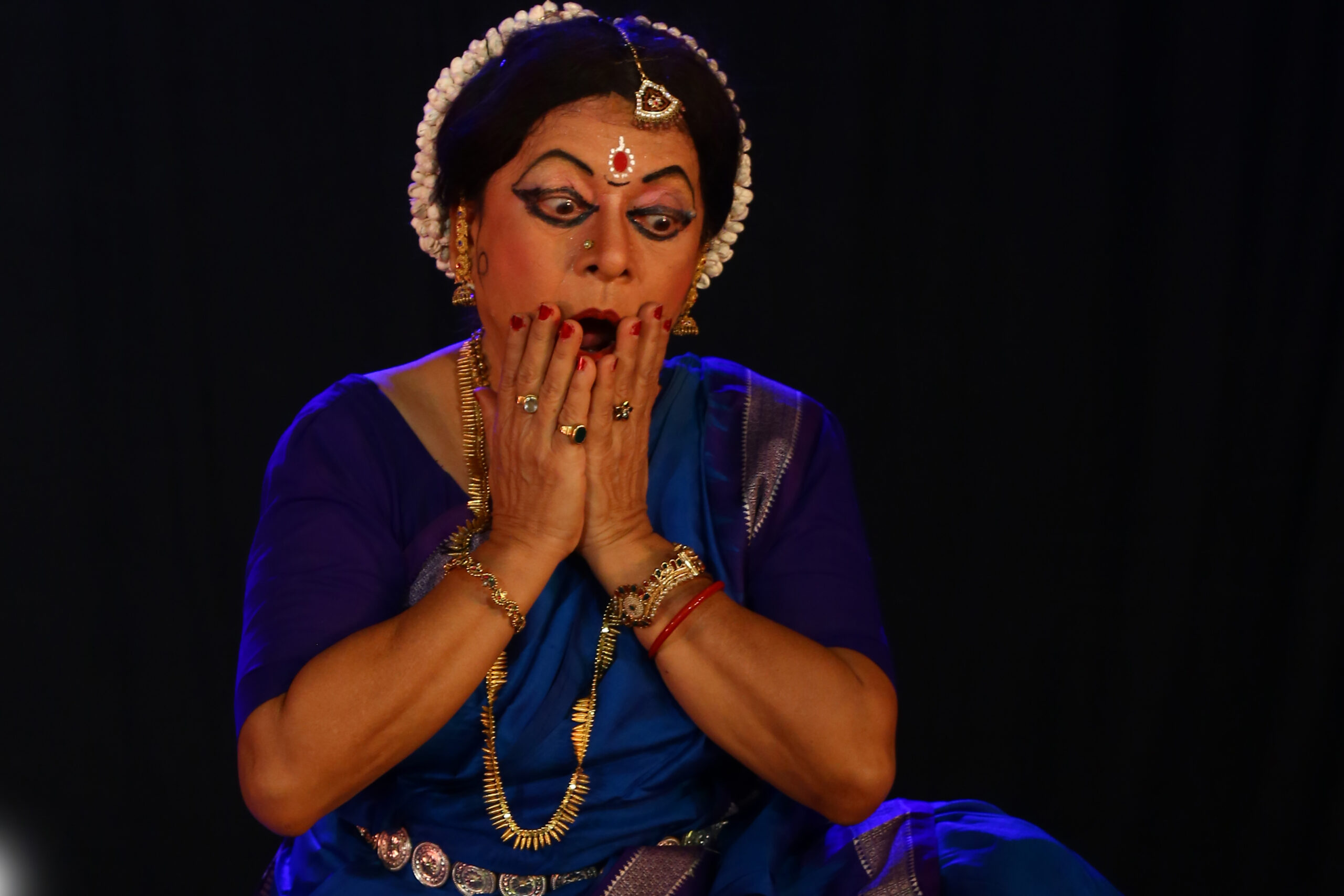Dhaneswar Swain: A Maestro of Odissi Mardal
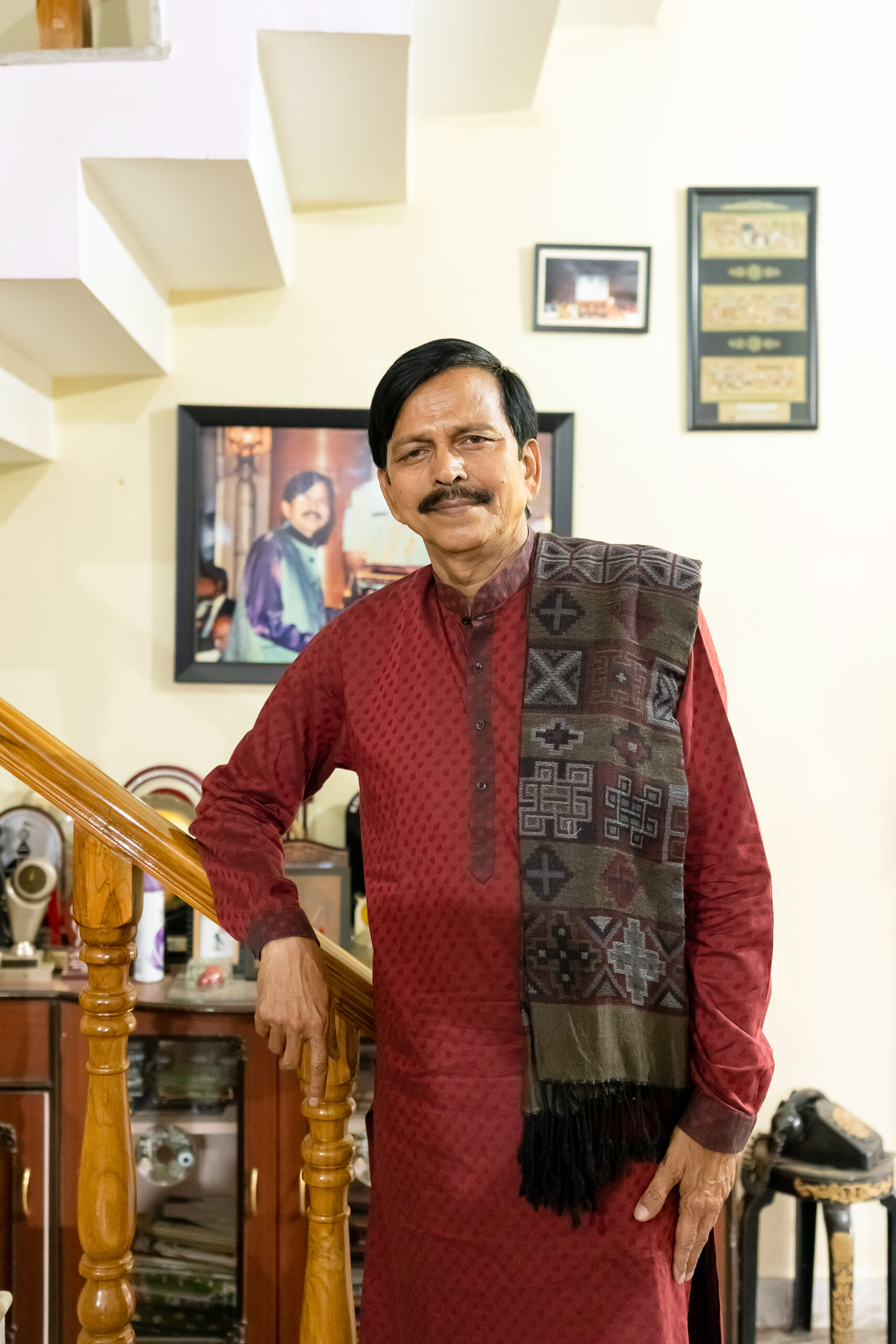
Text and Pics: Paul Nicodemus
Mardal, the traditional percussion of Odisha because of its incredible tonal character, is considered the king of all percussion instruments. The instrument is an essential part of the Odissi music and dance presentations. For centuries, it served as an inevitable musical instrument in many sacred rituals of Orissa. An Odissi mardal exponent, Guru Dhaneswar Swain, with his exceptional ingenuity in rendering the rhythmic phrases, an excellent fingering technique and zealous dedication made the instrument famous not only in Odisha but also across India and the world. His command over the instrument and pleasing cadence of Mardal Vadan coupled with improvisation have established him as a solo Mardal artiste, and Mardal as a solo instrument.
Dhaneswar Swain was born on 18 May 1953, in Nahantara village in Puri district of Odisha, to Sambhunath Swain and Kanchan Swain. He started playing Mardal at 10. Playing Mardal was a tradition of Bhagabata Tungi which belongs to Odissi Sangeet. Odia Bhagabata Tungi is an integral part of Odia culture. People in the village gathered every evening and played music. It was not a solo performance but more on the lines of a group bhajan. Swain has an elder brother, Bhramarabar Swain, 95 years now, and he learnt to play Mardal from him in the initial days. Dhaneswar Sain sat with the group and picked up specific nuances of Odia sangeet and mardal.
After his matriculation, he got enrolled in Utkal Sangeet Mahavidyalaya to learn music in 1970. Majority of the artistes in Odisha hail from Utkal Sangeet Mahavidyalaya. He finished his Post Graduation from the university in 1976. Though they established the college in 1965, mardal department opened during the time Swain’s stint at the college. He received training under the masters Singhari Shyamsundar Kar and Banamali Maharana at the Utkal Sangeet Mahavidyalaya, Bhubaneswar. Till then, there was no proper facility to learn mardal in Odisha.
After his post-graduation, he travelled to Delhi to work with Odissi exponent, Sonal Mansingh for a year. Later, he got back to Bhubaneswar. In 1979, he joined the Mahavidyalaya as a teacher of percussion. He taught at the college for over 30 years until his retirement in 2011.
Traditionally, mardal accompanied the music and dance performances. Swain came up with an idea and felt, “Why can’t I make it a solo instrument too?”. He not only gave it a thought but acted on it with commitment. Since then he has been playing solo concerts apart from his other music and dance group collaborations.
Dhaneswar is not only an outstanding musician but also an excellent educator. He has been training students in the art and technique of playing mardal as a solo instrument, in a duet, as an accompaniment in a group and for dance performances. Every category has a distinction.
Dhaneswar is part of a music group named ‘Badya Bani’. Several tradition percussionists who use leather instruments from Odisha formed into a group. They performed across the country and also abroad. The group was known for producing a distinctive flavour unique to Odia Sangeet. “Bol Bani of Odia Sangeet is unique compared to Carnatic and Hindustani music. The tone generated by Odissi mardal is typical of Odia Sangeet and has been traditionally transferred through parampara,” says Dhaneswar.
Over the years, Odissi mardal developed into a systematic instrument. Its development began in the 70s, and now it has its grammar. Dhaneswar Swain played an active part in the establishment of Odissi mardal. His younger brother, Sachithananda Das, is also an accomplished mardal player who trains students. Mardal, which was once a ritualistic instrument, is now taught systematically in several institutions. Several gurukuls have been established in the state of Odisha. On every Sunday, Dhaneswar visits a gurukul near Puri in Odisha and teaches mardal to 35 students. At his residence, he guides senior and PhD students who want to submit papers. He has been a remarkable resource for students of Odia Sangeet, especially with mardal and tala. Students from across India and other countries visit him.
His primary inspiration comes from the thought of propagating and promoting Odia sangeet and culture all over the world.
In 1994, when he performed at Vrindavan Haridas Sangeet Samaroh in Vrindavan, people from the audience came to him and enquired about his Gharana as the tone was distinct from other Gharanas of India. Dhanesar told them about the Odissi Gharana. His style of playing depends on the format of the presentation. Years of practice transformed him into a dynamic Mardal maestro. When he plays for a dance performance, he plays in coordination with the dancer. For his solo concerts, he follows a pattern – Jaman, Chowgathi Ragada, Chanta Prakarana, Ragada, Chalan, Dharan, Kandi, Badi, Bhanuri Arosha, Jati and Mana. Jati taal, Adi taal, Tripata and Jampa taal are his favourite talas.
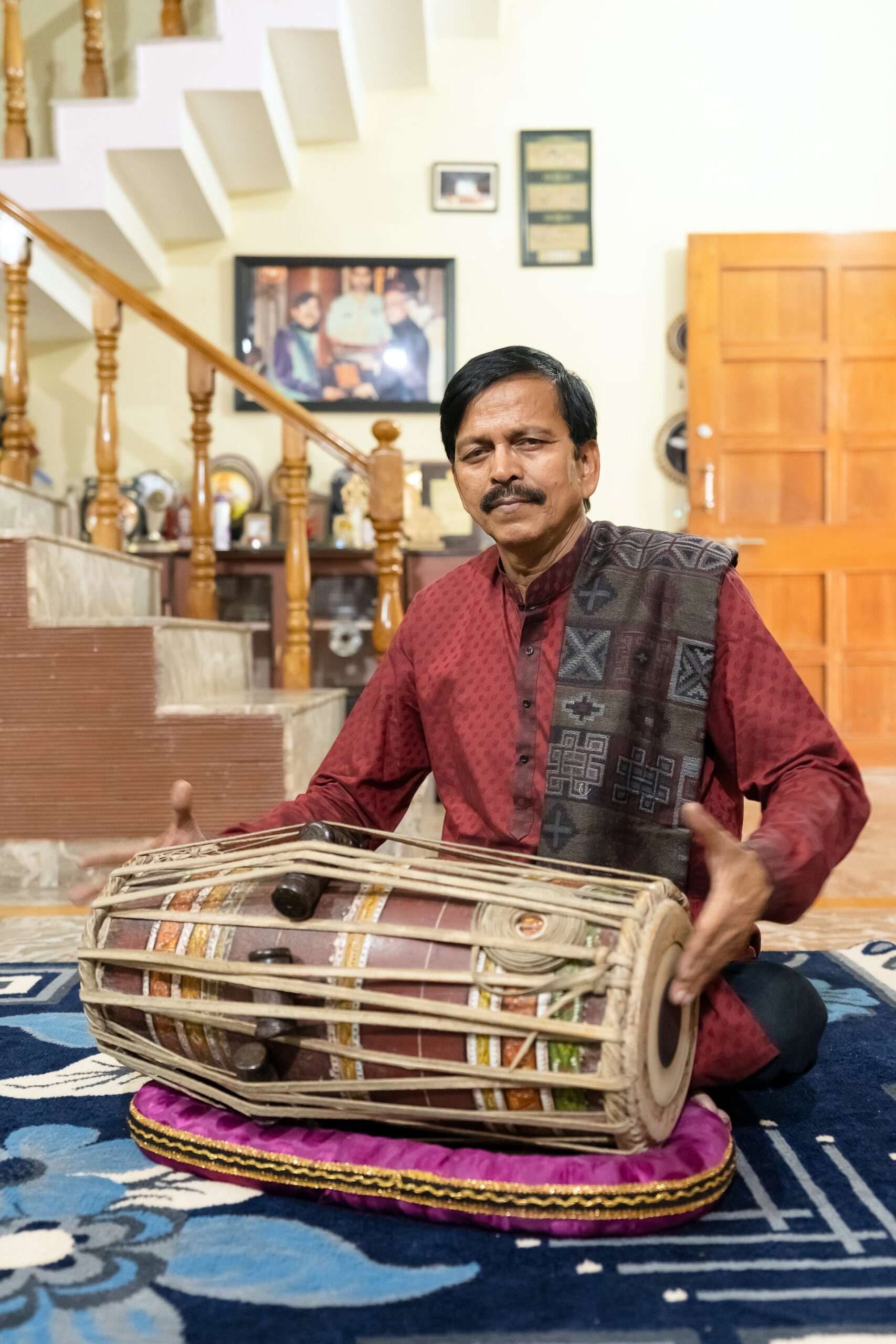
One of his memorable moments was his solo performance at Konark Festival in Konark Natya Mandap in 1984. Several stalwarts including Guru Gangadhar Pradhan and Bhuwanesar Mishra were present during his solo performance, and it gave him a lot of jubilation.
Sangeet Natak Akademi presented him an award in the category of a solo mardal player. “I requested the Sangeet Natak Akademi and presented a 15-minute lecture-demonstration in front dancers, musicians and critics in Delhi. I recorded video will be with the Akademi. It gave me a lot of happiness,” he states.
Now, mardal as an instrument receives a lot of encouragement, but earlier things were not the same. “I should bring up, Guru Kelucharan Mohapatra, Banamali Maharana and Guru Gangadhar Pradhan, they have done a remarkable work by incorporating mardal with Odissi dance music. Whatever music you hear with Odissi dance, were from their compositions. After them, our generation took over. I have composed some new music for Odissi dance,” he says. Over the years, he worked with most Odissi dancers including Sonal Mansingh, Ranjana Gaurh, Geeta Mali, Kavita Dwivedi, Aruna Mohanty, Durgacharan Ranbir, Bichitranand Swain, Prabhat Kumar Swain, Niranjan Raut and others. Almost ninety percent of his work was with dance.
Swain has achieved national and international acclaim as a mardal player in Odissi dance, accompanying leading dancers in their recitals since the 1980s. At the same time, he has endeavoured to carve out its own space for the mardal in Odissi music by giving solo concerts at numerous venues. The Raja Rani Music Festival in Bhubaneswar, the Sankat Mochan festival in Varanasi, and Sangeet Sandhya at the India Habitat Centre, New Delhi, were some events where Swain has played solo. He has toured extensively with Odissi dancers as a musician, performing all over India and in the United States, Germany, Spain, Belgium, Denmark, Norway, Finland, China, Singapore, Malaysia, South Korea, Jordan, and Israel.
Talking about the growth of Mardal drumming, he says, “Earlier Mardal playing did not have a system, now we play according to Shastra. During its evolution, ‘Sur’ (scale) became a part of Mardal drumming. Now, we can tune the instrument to any scale of choice and sing, but in the olden days, they did not have the concept of scale, and they sang to whatever ‘Sur’ mardal made upon hitting it,” he shares. Things became systematic since 1970. With the introduction of mardal as a subject in the college, it got a grammar of its own.
Dhaneswar Swain has received recognition as a composer of dance music and has created music for several choreographic works such as Panchadeva Stuti, Dasha Mahavidya, Yuge Yuge Jagannath, and Srishti O Pralaya.
He has produced CDs of his compositions on the mardal titled ‘Vadya Vani’ and ‘Moods of Rhythm’, which have received appreciation from connoisseurs of tala. He has published articles on the mardal and conducted workshops on dance music at several institutions.
Dhaneswar Swain has been honoured for his work with the title ‘Badyashree’ conferred by the Utkal Sahitya Kala Parishad in 1999. He received the Odisha Sangeet Natak Akademi Award in 2008. He received the Central Sangeet Natak Akademi Award for his contribution as a mardal drummer in the field of dance music in 2013.
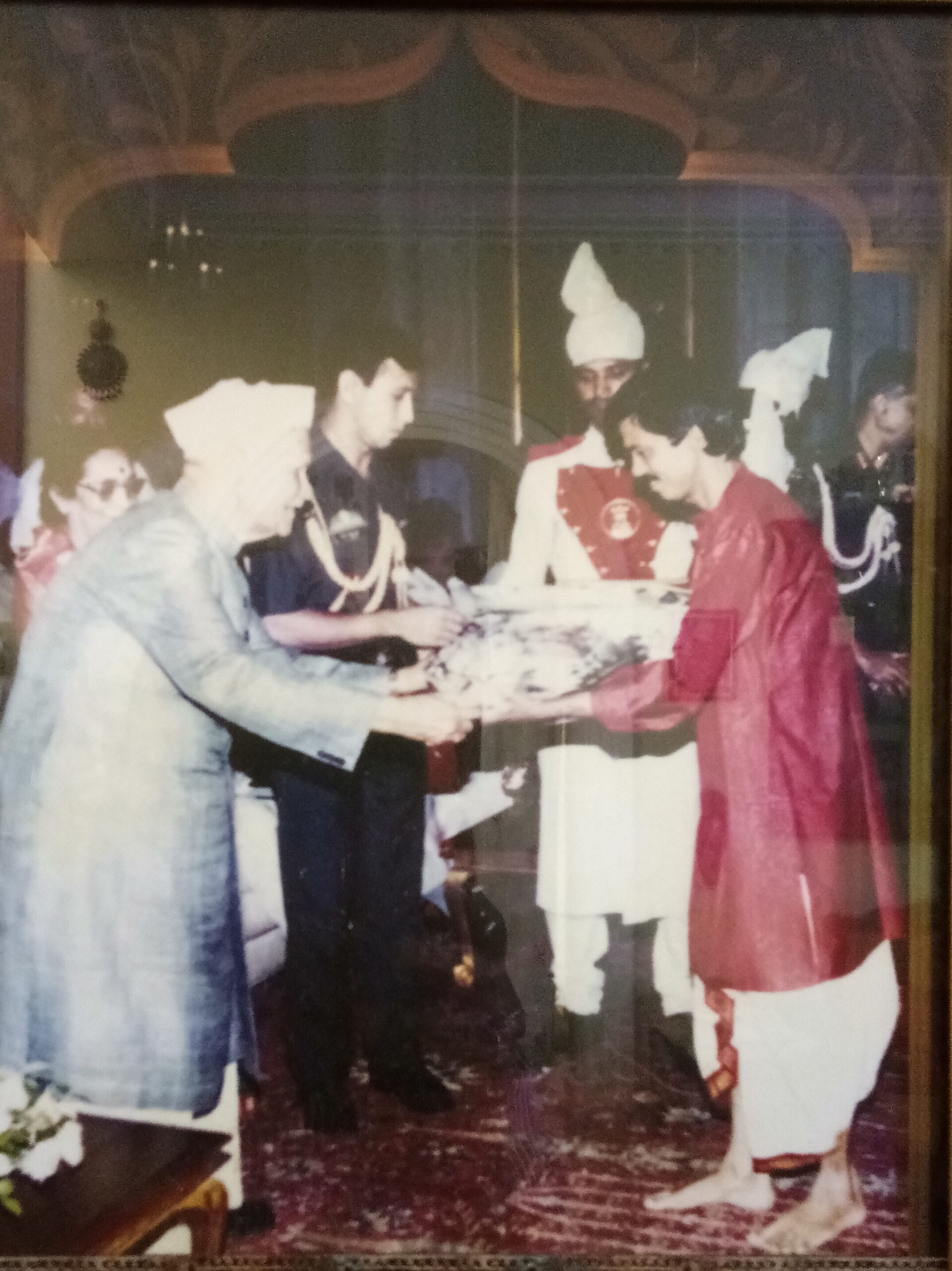
Dhaneswar Swain feels senior gurus and institutions should support youngsters to pick up Mardal. “I feel wonderful when my students perform on stage. I give feedback and encourage them. Every guru should see that the parampara is continued,” he concludes.
He is married to Saudamani Swain, and the couple is blessed with two girls, Barsha Banani and Manisha Swain and a boy, Abhilash Swain.


